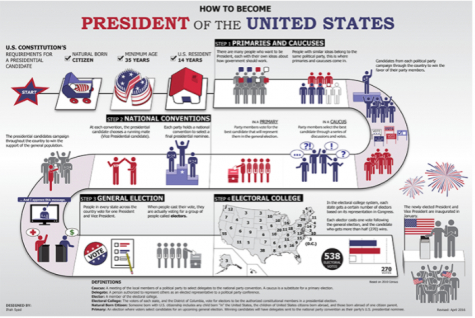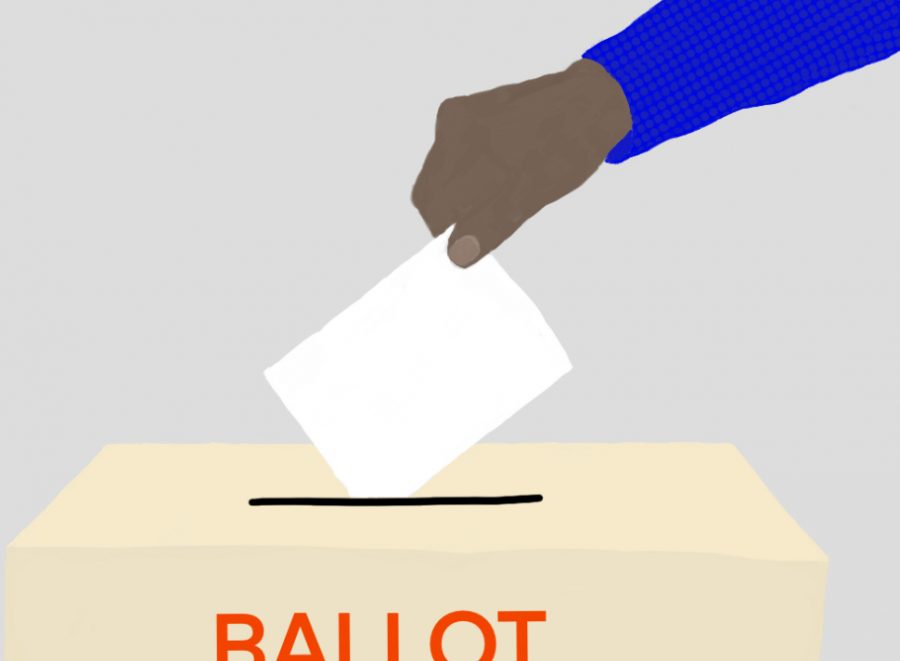Your Vote Matters
Why, even with an Electoral College, your singular vote matters
It is imperative to our democracy that everyone votes, no matter who you vote for, your vote matters.
September 22, 2020
You may have seen the phrase “your vote matters” plastered all over Instagram lately. Here’s why you need to cast your ballot. In presidential elections, your vote is synonymous with your voice. Whoever wins will be the commander in chief for the next four years.
The electoral college has caused many Americans confusion. The idea of it may seem perplexing, but it’s not all that complicated.
Government teacher Ms. Holmes explains the electoral college like this:
“The electoral college is the formal way we elect the president and vice president of the United States,” she said. “There are 538 electors in the electoral college that are trying to be ‘won’ by the Republican and Democratic candidates. Each state is given a particular number of electors based on their population. A candidate needs 270 electoral votes to win the election. When you vote for a candidate, you are actually voting for a slate of electors that promise to vote for that candidate.”

Our electors are the only people who directly vote for president. On the first Monday after the second Wednesday of December the electors meet to officially vote for the president. Whenever you (a non elector) vote for president you are contributing to the popular vote, this vote then appoints a state elector who will then vote at the meeting of electors.
Even though our country is a democracy, it can be confusing that we don’t directly elect our president like we do with other electable positions.
Our Founding Fathers, mainly James Madison (who was the greatest supporter of the electoral college) wanted to ensure that if one party were to become the majority, they wouldn’t infringe upon the minorities’ political views and rights.
According to the National Archives, it is done this way because “the Founding Fathers established it in the Constitution, in part, as a compromise between the election of the President by a vote in Congress and election of the President by a popular vote of qualified citizens.”
So get out and vote on Nov. 3 or request a mail in ballot and vote earlier. However you are going to do it, cast your vote and use your voice, because it could change the next four years of your life.
It is imperative to our democracy that everyone votes, no matter who you vote for, your vote matters. If you are not registered and are eligible to vote, register here.














Susan Anthony | Sep 23, 2020 at 1:42 pm
Article II, Section 1
“Each State shall appoint, in such Manner as the Legislature thereof may direct, a Number of Electors….”
The U.S. Supreme Court has repeatedly characterized the authority of the state legislatures over the manner of awarding their electoral votes as “plenary” and “exclusive.”
Alexander Hamilton, the other Founding Fathers, and the rest of the Founding Generation were dead for decades before state-by-state winner-take-all laws become the predominant method for awarding electoral votes.
James Madison, the “Father of the Constitution,” was never in favor of our current system for electing the president, in which nearly all states award their electoral votes to the statewide popular vote winner. He ultimately backed a constitutional amendment to prohibit this practice.
Gouverneur Morris declared at the Constitutional Convention of 1787: “[If the president] is to be the Guardian of the people, let him be appointed by the people.”
There is nothing in the Constitution that prevents states from making the decision now that winning the national popular vote is required to win the Electoral College and the presidency.
The National Popular Vote bill is 73% of the way to guaranteeing the majority of Electoral College votes and the presidency to the candidate who receives the most popular votes in the country.
The bill changes state winner-take-all laws (not mentioned in the U.S. Constitution, but later enacted by 48 states), without changing anything in the Constitution, using the built-in method that the Constitution provides for states to make changes.
It requires enacting states with 270 electoral votes to award their electoral votes to the winner of the most national popular votes.